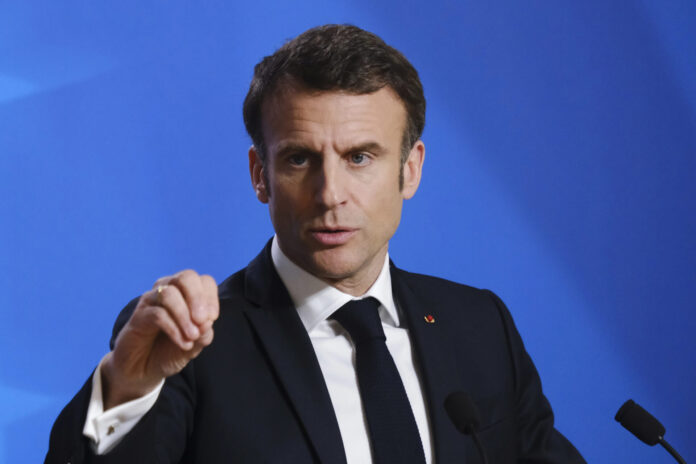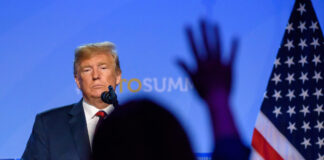
While France may be well known for waving the white flag during times of war, the nation sure does like to fight aggressively during times of (relative) peace.
As exclusively reported by the New York Post, France is apparently all on board with the potential usage of a so-called “trade bazooka” – despite the fact that the EU apparently made a trade deal with Trump.
This “trade bazooka” threat has been on the table since April, when the EU reportedly crafted a counterattack against the United States – with a specific focus on Republican states.
“Only France called for the immediate establishment of the anti-coercion instrument even in the event of a deal,” Macron brayed in a leaked audio.
The anti-coercion clause, which has never been used before, is loosely based on the U.S. Trade Act of 1974.
Not only would the anti-coercion clause involve heavy levies on the American markets, but it also “gives EU officials the power to restrict intellectual property rights, curtail foreign investment, or even outright ban some US services.”
In other words, such a “trade bazooka” would truly terminate the relations between the US and EU.
Though it would appear other EU nations grudgingly gave in, ignoring France.
As detailed in Politico, EU trade chief Maroš Šefčovič made it rather clear that he was displeased with the overall process, though he also admitted that was the “best” possible outcome, given all the circumstances.
“This is clearly the best deal we could get under very difficult circumstances,” Šefčovič growled.
Fair enough.
Other European leaders have also indicated their displeasure with the trade negotiations, bemoaning the trade bloc’s atrophied political power.
“The lesson of this agreement: We are an economic giant but a political dwarf,” Valerie Heyer, who serves as the leader of the liberal Renew group in the European Parliament, declared.
Bernd Lange, a German Social Democrat, grudgingly admitted that the United States won, yet again, in its aggressive tactics.
“Trump has won, there’s no question about that,” Lange raged.
Other European leaders likely wish that the “trade bazooka” envisioned by Macron would have been implemented after all, especially when considering how Europe projects its political power in the future.
David Kleimann, who serves as a senior trade expert at the ODI think tank in Brussels, believed that the recent trade deal was an effective “surrender” to Trump on the global stage.
“The optics of an EU Commission president surrendering to a U.S. President Trump may have lasting effects on the identification of the Union’s citizens with the supranational project,” Kleimann grimly remarked.
Elvire Fabry, who serves as a trade expert at the Jacques Delors Institute in Paris, noted that the economic agreement was likely strongly influenced by the ongoing war in Ukraine, as the United States plays a pivotal role in shaping the conflict’s outcome.
“There is a dependence on U.S. security guarantees on Ukraine and [an] energy dependency which limits the EU’s ability to confront the U.S,” Fabry detailed.
Which is precisely why other EU nations have not publicly embraced the “trade bazooka,” much as they may have wanted to do so.
“There has not been a united front of member countries calling for confrontation over the past days,” Fabry added.
Well, with any luck, no further confrontation will be necessary … at least in the near term.
Author: Ofelia Thornton



